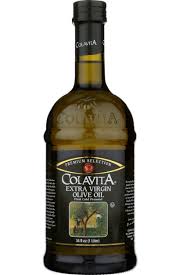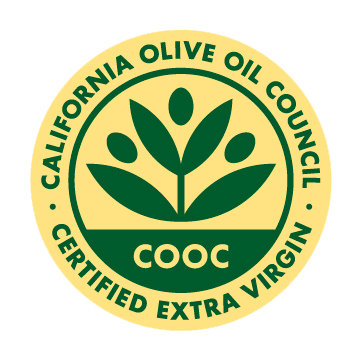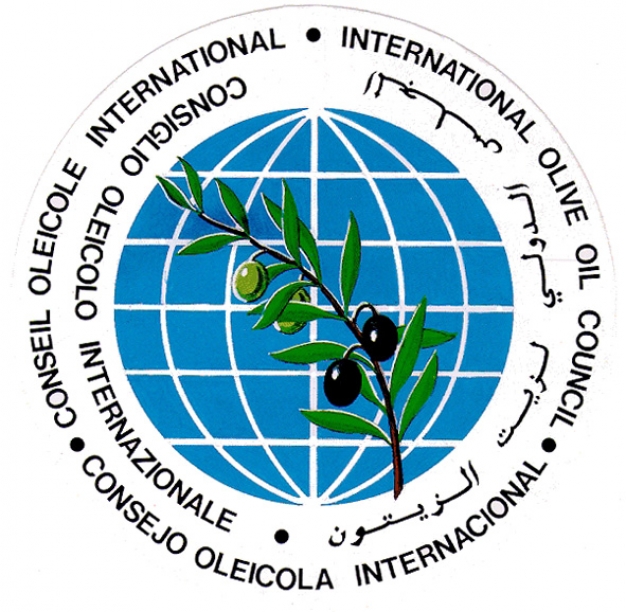 Apparently OLIVE OIL FRAUD is a real thing!
Apparently OLIVE OIL FRAUD is a real thing!
According to a food fraud study spanning three decades in the Journal of Food Science, olive oil was the most referenced tainted food mentioned in scholarly articles from 1980 to 2010. Not to mention, a recent University of California, Davis study tested supermarket samples and concluded that more than 69 percent of oils labeled “extra virgin” did not meet the legal standard for extra virgin olive oil. (1) Furthermore, a CBS report found that up to 70 percent of the extra virgin olive oil sold worldwide is watered down with other oils and enhancers. (2)
Who knew right? The more important question is, why should this concern us? Because in light of the MANY benefits of olive oil, you probably want to make sure you’re getting the real deal. Real, high-quality, extra virgin olive oil has well-researched anti-inflammatory compounds, antioxidants and numerous heart-healthy macronutrients. (2)
So exactly WHAT are the benefits of olive oil? I’ve checked out a few sources and I love the way Dr. Josh Axe has detailed the benefits of olive oil. According to his research (2), major olive oil benefits include the way it:
-
- Fights inflammation
- Protects heart health
- Helps fight cancer
- Helps with weight loss and obesity prevention
- Supports brain health
- Fights mood disorders and depression
- Naturally slows aging
- May help lower risk of diabetes
- Is associated with lowered breast cancer risk
For those wanting to know the specifics of each of the above benefits (and more!), I’ve literally copy/pasted an excerpt from his website below. Just scroll down for the header that reads “8 Extra Virgin Olive Oil Benefits”.
Ok. So now we know that olive oil is good for us. The next step is knowing that we’re getting the RIGHT olive oil to fully exploit it’s benefits. How do we know which olive oil to buy? To quote Dr Axe, “Olive oil is made from the fruit of the olive tree, which is naturally high in healthy fatty acids. There are several types of olive oil on the market today, including extra virgin olive oil, virgin olive oil and regular olive oil — but research shows that extra virgin olive oil benefits are more abundant than the other varieties.“

In short, you always want to look for extra virgin olive oil. If the label says “extra virgin,” then you know the oil is extracted using natural methods (it’s made by pressing the olives, as opposed to being industrially processed in any way) and will thus have the highest density of antioxidants. (1) What you want to AVOID are any olive oils that say “refined” or “light” in their labelling. Why? Because these oils have often been drawn out of the fruit using different types of solvents. Also, they’re likely processed or heated. Sometimes they can even be weakened or diluter with cheaper oils, like soybean oil and vegetable oils, or even canola oil (i.e. BAD!). (2)
Sadly, in some cases, even olive oil with an “extra virgin” label might have been tampered with or diluted (there’s that olive oil fraud I mentioned above…wth?). But there are a few tips to ensure you’re getting the good stuff including:
- Unique taste. Good EVOOs are lightly spicy, nutty, and peppery. If your EVOO is lacking in these notes of bitterness, then you know it’s lacking in antioxidants.
- High smoke point threshold. Smoke point means the temperature at which the oil starts to break down and lose it’s nutritional value, and it literally starts to smoke or burn. A really good EVOO will have a smoke point of approximately 375 degrees F, compared to 200 degrees found with lower quality olive oils. (1)
- It’s certified. There are labels and certifications you can look for when it comes to buying the real deal. Italian EVOO producers have created a seal of integrity and certified origin – 100% Qualita Italiana. Producers of EVOO in California have also created the California Olive Oil Commission (COOC). There is also the North American Olive Oil Association seal of certification – a red circle with a green olive branch inside. As well as the International Olive Oil Council (IOC). See below for sample logos.
- It’s protected from light. Shop for olive oil that comes in a dark glass bottle that can protect light from entering and damaging the vulnerable fatty acids. A dark bottle that is green, black, etc., protects the oil from oxidation and becoming rancid. Avoid oils that come in a plastic or clear bottle and be sure to keep your olive oil in a cool, dark place to maintain it’s quality. Also keep in mind that you will know you have a good product if it solidifies when it’s cold and refrigerated. This has to do with the chemical structure of the fatty acids. You can put it in the refrigerator and it should become cloudy and thicken, but if it remains liquid then it’s not pure extra virgin.
- Price. Like most things in life, you get what you pay for. Dr Axe seems to think that anything less than $10 USD per litre is simply not the real deal.


Hope the above info helps! Bottom line is that olive oil is the BOMB! And the better the olive oil, the better it is for us. Keep in mind, olive oil is just one of many good healthy fats/oils available to us. Other good cooking oils include avocado oil, sesame oil and coconut oil, to name a few. And don’t forget about ghee! At a minimum, if you’re still using canola oil, vegetable oil, peanut oil or soybean oil, try and replace those oils with ANY of the others I just mentioned.
Quick tip! I love getting olive oil into my kids. One of the easiest ways is home-made French fries! Just slice up a potato into strips the size of a pinky finger. Toss in generous amounts of olive oil and salt. Sprinkle a little pepper and paprika for extra flavour. Spread each fry evenly on a baking sheet lined with parchment and bake for approximately 25-40 minutes (pending if you like them on the soggy or crispy side) at 400F, flipping each fry individually half way through. NB! The parchment is key otherwise the fries will stick to the baking sheet and fall apart. For those of you avoiding nightshades and wanting some fries for yourself, simply swap potatoes for sweet potatoes.
As always! Don’t hesitate to reach out with any questions or comments. Cheers! Karli.
P.S. As mentioned above, below is a detailed summary of the benefits of olive oil, as provided by Dr Josh Axe.
References:
(1) www.gundrymd.com/best-olive-oil/
(2) www.draxe.com/olive-oil-benefits/
8 Extra Virgin Olive Oil Benefits
1. Protects Heart Health
Studies have found that high monounsaturated fat diets lower LDL cholesterol, raise HDL cholesterol and lower triglycerides better than lower-fat, higher-carb diets do. Thanks to powerful antioxidants known as polyphenols, extra virgin oil is considered an anti-inflammatory food and cardiovascular protector. When someone’s immune system essentially begins to fight her own body as a result of a poor diet, stress or other factors, inflammatory responses are triggered that lead to dangerous, disease-causing inflammation.
The purpose of inflammation is to protect us against illnesses and repair the body when needed, but chronic inflammation is extremely harmful to arterial health and linked to heart disease, autoimmune diseases and more. Extra virgin olive oil helps reverse inflammatory along with age- and disease-related changes to the heart and blood vessels, according to a 2009 study published in the Journal of Cardiovascular Pharmacology. Research shows olive oil is beneficial for lowering high blood pressure because it makes nitric oxide more bioavailable, which keeps arteries dilated and clear.
The protective effects of a Mediterranean-style diet rich in alpha-linolenic acid (ALA) from olive oil have been shown in many studies, with some finding that this type of higher-fat diet is capable of decreasing the risk of cardiac death by 30 percent and sudden cardiac death by 45 percent!
2. Helps Fight Cancer
According to a 2004 study published in the European Journal of Cancer Prevention, olives and olive oil contain antioxidants in abundance. They are some of the best high antioxidant foods. Olives (especially those that have not been subjected to high-heat processes) contain acteosides, hydroxytyrosol, tyrosol and phenyl propionic acids. Both olives and olive oil contain substantial amounts of other compounds deemed to be anticancer agents (e.g., squalene and terpenoids) as well as the peroxidation-resistant lipid oleic acid.
Researchers feel that it’s probable that high olive and olive oil consumption in southern Europe represents an important contribution to the beneficial effects of cancer prevention and health in the Mediterranean diet.
3. Helps with Weight Loss and Obesity Prevention
Eating plenty of healthy fats is a key element in controlling excess insulin, a hormone that controls blood sugar levels, makes us gain weight, and keeps the weight packed on despite us cutting calories and exercising more. Fats are satiating and help reduce hunger, cravings and overeating. This is one reason why numerous studies have found that diets low in fat don’t result in weight loss or weight maintenance as easily or often as balanced, higher-fat diets do.
After reviewing five trials including a total of 447 individuals, researchers from University Hospital Basel in Switzerland found that individuals assigned to higher-fat, low-carbohydrate diets lost more weight than individuals randomized to low-fat diets. There were no differences in blood pressure levels between the two groups, but triglyceride and high-density lipoprotein cholesterol values changed more favorably in individuals assigned to the diets higher in fat.
Because diets with ample amounts of healthy fats are more satisfying, people are much more likely to be able to stick with them. A 2002 study published in the Women’s Health Journal, for example, found that an olive oil-enriched diet brought about greater weight loss than a lower-fat diet in an eight-week comparison. Following the eight weeks, the participants also overwhelmingly chose the olive oil-enriched diet for at least six months of the follow-up period.
4. Supports Brain Health
The brain is largely made up of fatty acids, and we require a moderately high level on a daily basis to perform tasks, regulate our moods and think clearly. Like other sources of healthy fats, olive oil is considered a brain food that improves focus and memory.
Olive oil may help fight age-related cognitive decline, as it’s part of the Mediterranean diet and offers monounsaturated fatty acids associated with sustained brain health.
5. Fights Mood Disorders and Depression
Healthy fats, including olive oil, have hormone-balancing, anti-inflammatory effects that can prevent neurotransmitter dysfunction. Low-fat diets are often linked to higher rates of depression and anxiety. Mood or cognitive disorders can occur when the brain doesn’t get a sufficient amount of “happy hormones” like serotonin or dopamine, important chemical messengers that are necessary for mood regulation, getting good sleepand thought-processing.
One 2011 study conducted by the University of Las Palmas in Spain found that monounsaturated and polyunsaturated fat intake had an inverse relationship with depression risk. At the same time, trans-fat intake and depression risk had a linear relationship, showing that higher trans-fat consumption and lower PUFA and MUFA could up the chances of battling mood disorders and treating depression.
6. Naturally Slows Aging
An anti-aging diet should have plenty of healthy fats. Extra virgin olive oil is a great example. It contains a type of antioxidant called secoiridoids, which help activate gene signatures contributing to anti-aging and a reduction of cellular stress.
Secoiridoids in olive oil may also suppress gene expression related the the Warburg effect, a process related to the formation of cancer, and helps to prevent “age-related changes” in skin cells.
Just remember that olive oil shouldn’t be cooked at high heat, or it could have the opposite effect. Cooking with olive oil produces advanced glycation end products (AGEs), which contribute to “the multisystem functional decline that occurs with aging.”
7. May Help Lower Risk of Diabetes
Fatty acids influence glucose metabolism by altering cell membrane function, enzyme activity, insulin signaling and gene expression. Evidence suggests that consuming polyunsaturated and/or monounsaturated fats (the kind found in olive oil) has beneficial effects on insulin sensitivity and is likely to reduce risk of type 2 diabetes.
While carbohydrates elevate blood sugar by providing glucose, fats help stabilize blood sugar levels and regulate insulin. Even when you eat something high in sugar or carbs, adding extra virgin olive oil to the meal can help slow down the impact on your bloodstream. Consuming olive oil is also a great way to feel more satisfied after meals, which can help prevent sugar cravings and overeating that can lead to diabetes complications.
8. Is Associated with Lower Breast Cancer Risk
A case-control study conducted in Italy in 1995 discovered that, over 2,564 cases of breast cancer, higher consumption of olive oil was correlated with a lower risk of developing the disease. While there aren’t clear reasons for this, there is often an assumed interaction between healthy fats and hormone function, which could be one possible explanation.

Is it OK to have if you have heart problem.
I’m sorry! I only just saw this comment now! But YES! Absolutely ok to have if you have a heart problem according to Dr. Gundry who treats a vast number of patients with heart disease. But of course, you should always consult with your doctor. Hope that helps!